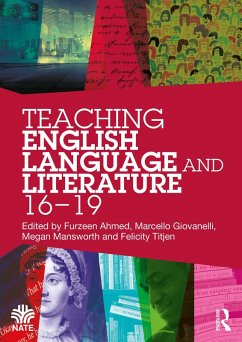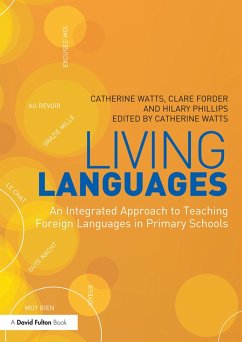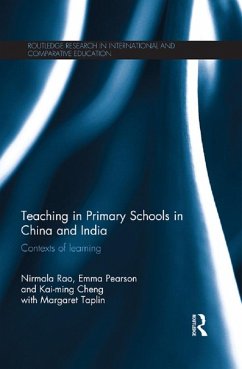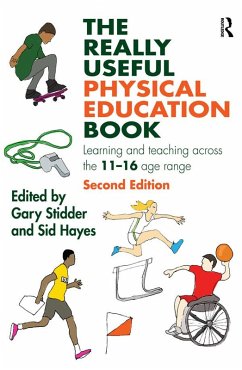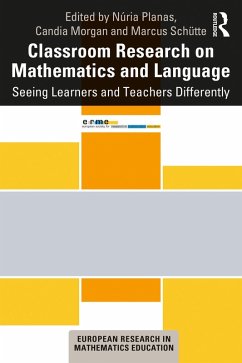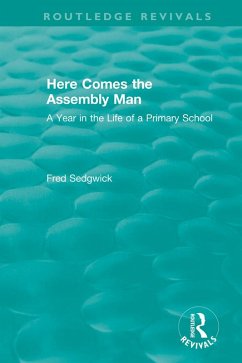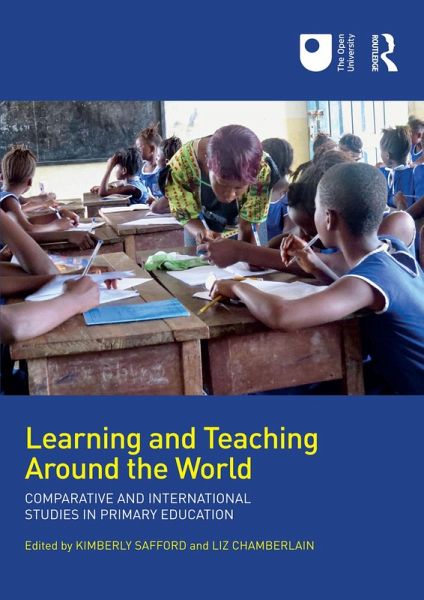
Learning and Teaching Around the World (eBook, PDF)
Comparative and International Studies in Primary Education
Redaktion: Safford, Kimberly; Chamberlain, Liz
Versandkostenfrei!
Sofort per Download lieferbar
36,95 €
inkl. MwSt.
Weitere Ausgaben:

PAYBACK Punkte
18 °P sammeln!
Learning and Teaching Around the World is a wide-ranging introduction to diverse experiences, practices and developments in global primary education. It explores different contexts for children's learning, and methods and purposes of primary education, in settings across Africa, Asia, Europe, the Americas and Australasia, and addresses wider issues such as the rise of refugee learners and large multi-grade classes.With an explicit focus on comparative and international studies and improving the knowledge, understanding and practice of effective pedagogies for children's learning, this book ref...
Learning and Teaching Around the World is a wide-ranging introduction to diverse experiences, practices and developments in global primary education. It explores different contexts for children's learning, and methods and purposes of primary education, in settings across Africa, Asia, Europe, the Americas and Australasia, and addresses wider issues such as the rise of refugee learners and large multi-grade classes.
With an explicit focus on comparative and international studies and improving the knowledge, understanding and practice of effective pedagogies for children's learning, this book reflects on key issues such as:
Learning and Teaching Around the World is an essential text for those wishing to develop a critical understanding of the experiences of primary teachers and children around the world. Aimed at both undergraduate and postgraduate education studies students, the scope of this book will support all students in developing knowledge of primary education and of the diverse needs of learners in an era of global movement of children and families.
With an explicit focus on comparative and international studies and improving the knowledge, understanding and practice of effective pedagogies for children's learning, this book reflects on key issues such as:
- Standards for learner-centred education
- Patterns of inclusion and exclusion
- Defining 'teacher professionalism'
- The impact of global education agendas
- Language policy for schooling and assessment
Learning and Teaching Around the World is an essential text for those wishing to develop a critical understanding of the experiences of primary teachers and children around the world. Aimed at both undergraduate and postgraduate education studies students, the scope of this book will support all students in developing knowledge of primary education and of the diverse needs of learners in an era of global movement of children and families.
Dieser Download kann aus rechtlichen Gründen nur mit Rechnungsadresse in A, B, BG, CY, CZ, D, DK, EW, E, FIN, F, GR, HR, H, IRL, I, LT, L, LR, M, NL, PL, P, R, S, SLO, SK ausgeliefert werden.




